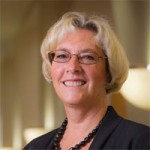This article is more than 5 years old.
ALADN (Academic Library Advancement and Development Network) is one of the most worthwhile conferences I attend. I started educating myself at ALADN after I came to Wake Forest because raising money for ZSR was one of my main goals. It was/is a challenge because I had no previous experience with library fundraising and we do not have a dedicated library development officer or volunteer board. ALADN is both for development professionals and library deans and directors. I saw a number of my colleagues from across the country, including Tom Moore, Central Michigan; Barbara Kriigel, UM-Dearborn; Helen Spalding, Oregon State; Beth Titus, New Mexico State; Bill Mayer, American; Adrian Alexander, Tulsa; Mary Reichl, Appalachian State; as well as some ASERL colleagues: Connie McCarthy, William and Mary; Sylverna Ford, Memphis; Julia Rholes, Mississippi; Laura Probst, Florida International; and Bill Garrison, South Florida.
 This year’s conference was in Colonial Williamsburg (picture to the left is Bruton Parish Church). I was a day late getting there because my mom wasn’t discharged from the hospital until Monday, but there was still plenty of information waiting for me. The unofficial theme of the conference was the challenge in rasing money for libraries in higher education during the “Great Recession.” One of the good things about ALADN is the use of speakers and consultants from the greater world of fundraising. One consultant spoke at the beginning and end of the conference with great humor and confidence. One of his topics was the management of volunteer leadership boards. We do not have such a board yet for ZSR but it is one of our goals. The consultant emphasized the importance of clear expectations for giving, “getting” (leads to other donors), terms and conditions when setting up a new board. Some libraries (Pitt, for example) get along very well without a board. At Wake, all major academic units have a Board of Visitors and I believe we should follow that model. During the current economic climate where it is not always appropriate to be asking for money from people who are losing their fortunes, it is a good time to reconnect with the university’s goals, with our role in helping to meet those goals, and with present and future donors on a human level.
This year’s conference was in Colonial Williamsburg (picture to the left is Bruton Parish Church). I was a day late getting there because my mom wasn’t discharged from the hospital until Monday, but there was still plenty of information waiting for me. The unofficial theme of the conference was the challenge in rasing money for libraries in higher education during the “Great Recession.” One of the good things about ALADN is the use of speakers and consultants from the greater world of fundraising. One consultant spoke at the beginning and end of the conference with great humor and confidence. One of his topics was the management of volunteer leadership boards. We do not have such a board yet for ZSR but it is one of our goals. The consultant emphasized the importance of clear expectations for giving, “getting” (leads to other donors), terms and conditions when setting up a new board. Some libraries (Pitt, for example) get along very well without a board. At Wake, all major academic units have a Board of Visitors and I believe we should follow that model. During the current economic climate where it is not always appropriate to be asking for money from people who are losing their fortunes, it is a good time to reconnect with the university’s goals, with our role in helping to meet those goals, and with present and future donors on a human level.
A particularly useful session was entitled Playing Nice in the Sandbox,” which talked about the relationships between departments in the university and within the Advancement office itself. Though some think Wake is a siloed institution, I think it is actually collaborative in nature and I can see developing positive relationships with all the various units that are needed in the fundraising process.
As mentioned above, I admire the development operation at the University of Pittsburgh. They have no Friends or volunteer boards, but instead focus on major gifts (defined as six figures). Their lead development person gave a talk on “Negotiation: From the Ask to Yes.” I wish I had more practice in closing the deal (for that matter, I wish I had more practice in opening the deal) but in the meantime, I can prepare with the tips provided in recognizing types of donors, specific techniques for closing, and dealing with objections.
One presentation gave two different approaches for development of the elevator speech. One used the business model of crafting a message based on features and benefits, while the other came from an academic model of storytelling. I think I tend more toward the storytelling side, but the major point is to develop and perfect a short piece about the library and be prepared to veer off in one desired direction or another depending on the interests of the donor.
That is a summary of my favorite sessions. Next year ALADN will be in Santa Monica, so I just might have to make that one!
